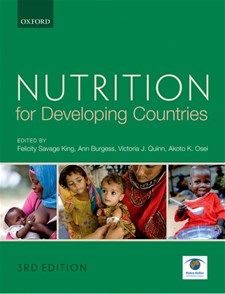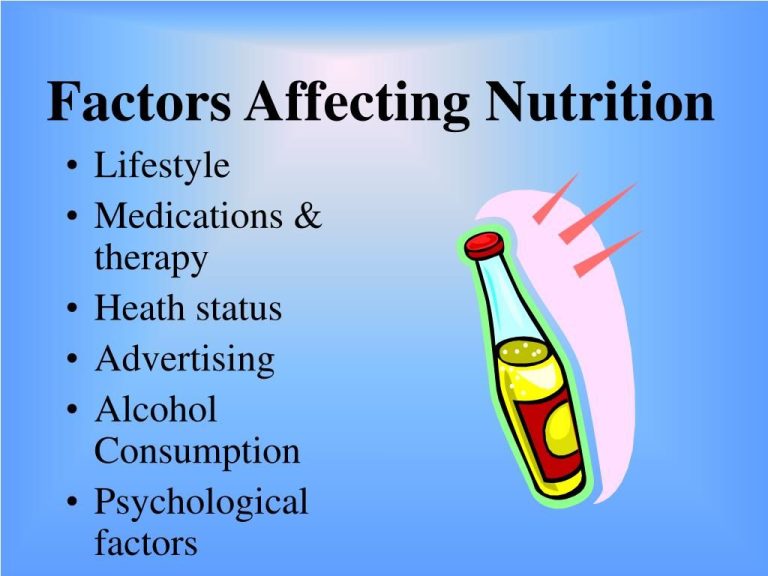In developing countries, proper nutrition is a significant concern that needs to be addressed. Adequate access to nutritious food is essential for the overall well-being of individuals and communities. However, many developing countries face various challenges in achieving optimal nutrition for their populations. This article aims to explore the current state of nutrition in developing countries and identify the key issues and potential solutions.
Food Insecurity
One of the primary reasons for nutrition challenges in developing countries is food insecurity. Food insecurity refers to a lack of consistent access to sufficient, safe, and nutritious food, resulting in poor health and malnutrition. Many individuals and families in developing countries struggle to meet their basic dietary needs.
As a result, undernutrition becomes a prevalent issue, particularly among vulnerable populations such as children, pregnant women, and the elderly. Insufficient consumption of calories, proteins, vitamins, and minerals can lead to stunted growth, weakened immune systems, and increased susceptibility to diseases.
To address food insecurity, governments and international organizations need to implement effective policies and programs. This includes improving agricultural practices, enhancing food distribution systems, and promoting sustainable farming methods. By enhancing food production and accessibility, the issue of food insecurity can be tackled head-on.
Micronutrient deficiencies
Another critical aspect of nutrition in developing countries is the prevalence of micronutrient deficiencies. Micronutrients, such as vitamins and minerals, are essential for the proper functioning of the human body. However, many individuals in developing countries lack access to a diverse diet that provides an adequate amount of these essential nutrients.
This deficiency leads to various health problems, including vitamin A deficiency, iron deficiency anemia, and iodine deficiency disorders. These conditions can have severe consequences on individuals’ health and development, particularly children.
To combat micronutrient deficiencies, organizations must focus on implementing strategies such as food fortification, biofortification, and dietary diversification. Food fortification involves adding essential micronutrients to commonly consumed food items like flour and salt. Biofortification involves breeding crops to be naturally rich in essential nutrients. Encouraging individuals to consume a diverse range of locally available nutritious foods is also crucial.
Impact on Children’s Development
Nutrition plays a critical role in children’s development, both physically and mentally. Malnutrition during the early years of life can have irreversible effects on a child’s growth and cognitive abilities. Unfortunately, millions of children in developing countries suffer from malnutrition, leading to long-term consequences.
Poor nutrition in early childhood can result in stunted growth, impaired cognitive function, and reduced school performance. These children are more susceptible to diseases and have higher mortality rates. Moreover, the effects of malnutrition can extend into adulthood, leading to a decreased quality of life and economic productivity.
To address this issue, interventions such as promoting exclusive breastfeeding, improving prenatal and antenatal care, and implementing school feeding programs are essential. Providing children with nutritious meals and education on healthy eating habits can significantly impact their long-term well-being.
Women’s Nutrition
Women’s nutrition in developing countries deserves special attention due to its impact on maternal and child health. Pregnant women require additional nutrients to support the growth and development of their babies. However, many women in developing countries lack access to sufficient food and suffer from malnutrition during pregnancy.
Poor maternal nutrition increases the risk of complications during childbirth and can lead to low birth weight babies. Additionally, malnourished mothers may have insufficient breast milk production, further impacting the nutrition and health of their infants.
To improve women’s nutrition, it is crucial to provide access to prenatal care, nutrition education, and supplementation programs. The promotion of women’s empowerment and gender equality also plays a significant role in addressing nutrition disparities.
The Role of Education
Education is a powerful tool in addressing nutrition challenges in developing countries. By promoting nutrition education and awareness, individuals can make informed choices about their diets and improve their overall health.
Efforts should be made to educate both children and adults on the importance of balanced diets, proper food preparation, and optimal nutrition practices. This can be achieved through various channels, including schools, community health centers, and media campaigns. By empowering individuals with knowledge, sustainable improvements in nutrition can be achieved.
Conclusion
Nutrition in developing countries remains a significant concern, with food insecurity, micronutrient deficiencies, and their impact on children and women’s health being primary challenges. However, with focused efforts from governments, international organizations, and communities, it is possible to address these issues.
Through improved agricultural practices, fortified and diversified food sources, and education programs, nutrition disparities can be reduced. Prioritizing nutrition in developing countries is not only crucial for the well-being of individuals but also for the economic and social development of these nations.










